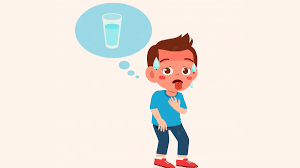No one is immune from the effects of dehydration, but certain groups, like infants and older adults, should pay extra attention. Dehydration can cause headaches, dizziness and even loss of consciousness. It can also make it difficult for the body to regulate its temperature, and may contribute to heart failure and diabetes, according to NIH-funded research.
Drinking plenty of fluids throughout the day is a good way to prevent dehydration, especially on hot or humid days, during exercise and when sick. A general guide is to drink enough water so that your urine is clear or pale yellow, and you are not losing too many fluids through sweat, urination or diarrhea.
If you are concerned that you or someone you care for is dehydrated, try this simple test: Pinch a small area of skin on the back of your hand and let go. If it springs back to its normal position in a few seconds, you are well-hydrated; however, if it takes longer or the skin seems flushed, you are dehydrated. To find out more about Water Coolers Wales, visit Water For You, suppliers of a range of Water Coolers Wales.
Getting enough fluids is important for every part of the body, and there are lots of ways to do it. Most healthy people can easily meet their fluid needs by drinking water and non-caloric beverages, and consuming foods with high water content. Keeping a bottle of water with you at all times is a great idea, and so are keeping some healthy snacks, including fruits and vegetables, in the house to help meet your daily fluid requirements.

